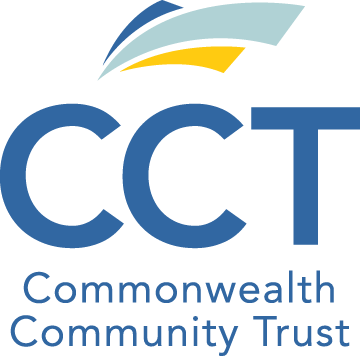Professionals Overview
About CCT
Founded in 1990, CCT is a 501(c)(3) non-profit corporation that administers the following pooled trusts:
- First-Party Pooled Special Needs Trust – funded with the Beneficiary’s own funds (self-funded) from a personal injury award, workers’ compensation claim, inheritance, savings, or Social Security back payment. CCT’s First-Party Pooled Special Needs Trust was set up in 1994 in response to the sweeping changes in the Medicaid rules under the Omnibus Budget Reconciliation Act of 1993 (OBRA – 93). This type of trust can be established by the person with special needs, a parent, grandparent, legal Guardian, or the Court. For Beneficiaries receiving Medicaid, this type of trust is sometimes referred to as a Medicaid payback trust.
- Third-Party Pooled Special Needs Trust – funded by a third party such as a family member or friend, and can be coordinated with an estate plan or life insurance policy.
- Settlement Preservation Pooled Trust – funded with the Beneficiary’s own funds.
Commonwealth Community Trust (CCT) provides general information to assist attorneys in the representation of their clients. CCT does not offer legal advice nor does CCT offer to draft legal papers for attorneys.
Professionals
How CCT Pooled Trusts Work
Commonwealth Community Trust’s Master Trust Agreements allows CCT to administer the trusts under the umbrella of the “master.” The Master Trust Agreements for both the Third-Party Pooled Special Needs Trust and First-Party Pooled Special Needs Trust were written by an Estate Planning Attorney with legal expertise in special needs planning and signed by the CCT Board of Directors and Capital First Trust Company. The CCT Board of Directors selected True Link Financial Advisors to manage and invest the funds.
Benefits of Establishing a CCT
Pooled Trust Sub-Account
- Experience in trust administration since 1990
- Available nationwide
- Trustworthy and experienced staff
- Knowledgeable about rules protecting Medicaid and SSI
- Greater investment opportunities as the funds are pooled
- Low minimum funding requirement
- Prompt disbursements for the sole benefit of the Beneficiary
- Affordable, comprehensive services with low administrative fees
- Sensitive to the needs of people living with special needs and their family members
- Stability as a national nonprofit organization
- Enrollment for Beneficiaries of any age
This information is meant for educational purposes only and it is not legal advice. For legal advice, please consult an attorney.
Dan, Brother and Advocate of a CCT Beneficiary
"CCT has been a blessing to our family. CCT has provided a sense of order, organization, trust, and leadership in helping to provide and protect the well-being of my younger sister. I would recommend CCT to anyone, and I already have." — Dan, Brother and Advocate of a CCT Beneficiary

Dustin, CCT Beneficiary
"I have had nothing but exceptional service from this company, they take their time to help with my needs and make sure I have what I need." — Dustin, Beneficiary of CCT
Cathy, CCT Beneficiary
"With the help of CCT I was able to purchase my Dream vehicle. Emily at CCT was/is a HUGE help! It was a very smooth transaction." — Cathy, Beneficiary of CCT
Grandmother of Beneficiary Kobe
"CCT made getting the wheelchair equip van we so much needed for our grandson the easiest purchase ever. Thank you CCT!!!" — Grandmother of Beneficiary Kobe
Rhonda, Mother and Advocate of a CCT Beneficiary
"CCT has been amazing. Very helpful with guiding us through this process." — Rhonda, Mother and Advocate of a CCT Beneficiary
Nancy, Grandmother and Advocate of a CCT Beneficiary
"CCT has been wonderful in serving the financial needs of my grandson. They are always prompt in answering questions and suggesting how we can make something happen for him. He just turned 18 this year and we still plan on using this service." — Nancy, Grandmother and Advocate of a CCT Beneficiary
Dan, Brother and Advocate of a CCT Beneficiary
"CCT has been a blessing to our family. CCT has provided a sense of order, organization, trust, and leadership in helping to provide and protect the well-being of my younger sister. I would recommend CCT to anyone, and I already have." — Dan, Brother and Advocate of a CCT Beneficiary
Dustin, CCT Beneficiary
"I have had nothing but exceptional service from this company, they take their time to help with my needs and make sure I have what I need." — Dustin, Beneficiary of CCT
CCT
Trusts
Professionals
Clients

*Disclaimer Statement: CCT is not a chartered bank or trust company, or depository institution. It is not authorized to accept deposits or trust accounts and is not licensed or regulated by any state or federal banking authority.
All Rights Reserved | Commonwealth Community Trust
